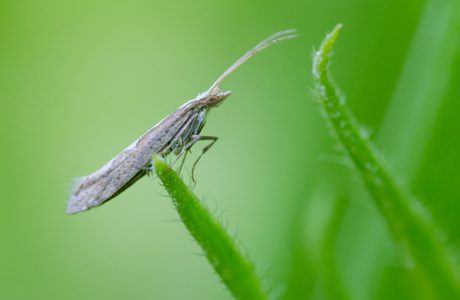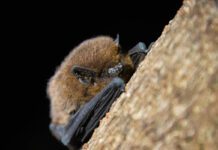
The Rothamsted Insect Survey has issued a special announcement regarding the diamondback moth and covers observations up until the 10th June 2016. Diamondback moths are an important migratory pest of brassicas, causing feeding and cosmetic damage that can lead to severe losses in cruciferous crops. The diamondback moth (Plutella xylostella) is a species often described a ‘super-pest’ because they have been found to be resistant to most insecticides, including pyrethroids and diamide. See the CABI datasheet (http://www.cabi.org/isc/datasheet/42318) for more information.
The Rothamsted Insect Survey, a National Capability supported by the BBSRC and the Lawes Agricultural Trust, has long-term annual records revealing that the numbers reported so far are exceptionally high. Similarly high numbers were last observed in 1996.
Mr Chris Shortall, research scientist and coordinator of the Rothamsted light-trap network, explained: “I noticed higher numbers than usual in the light-trap samples at Rothamsted and saw online that the moth-observing community was reporting high incidence of diamondback moths.”
“Normally, we gather the data at the end of the year from the volunteers that run light-traps around the country, but on the basis of these reports I contacted them and asked them to provide the data that they have so far. They reported much higher numbers than usual. In our light-traps here at Rothamsted we have seen in two nights the number of diamondback moths that we usually record in a year, and this is reflected elsewhere in the network.”
“I’m concerned for cabbage and cauliflower growers, which is why I wanted to inform the relevant organisations and growers as early as possible.”
“If the summer weather is warm and favourable for the reproduction of the moths we could see an explosion in the number of the moths by the end of the season”, Chris added.
Dr Steve Foster, senior scientist at Rothamsted Research in the department of Biological Chemistry and Crop Protection said: “We will aim to study the moths that are immigrating currently to the UK to identify whether they are resistant to the available insecticides and look for potential management methods. This could take up to a few weeks.”
“Growers should seek advice from their agronomists and authorised advisers as to how to manage the pest in their farms. We will aim to provide all scientific information when the data are available.”







